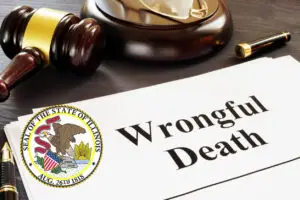Sustaining a personal injury is bad enough. But imagine being stuck having to pay most or all of your injury related expenses. It does happen– and nobody wants to be in this position. So follow this checklist in order to protect yourself and your interests.
- Do remember that in personal injury cases you have to prove fault. Use this important fact as your starting point! A slip and fall case is a good example of fault in a personal injury case. Simply because you slipped and fell on someone else’s property does not mean that the person who owns the property (or anyone else for that matter) was negligent. Accidents, where no one is at fault, do happen. In order to recover damages for slipping on someone else’s property, you and your lawyer must prove that that other person negligently maintained his/her property — i.e., that he/she did something wrong. Similarly, if you are in a car accident, you can only recover damages from the other driver if the other driver was at fault.
- Do obtain info that may later prove that the other party was at fault. This may seem obvious, but remember that a judge isn’t obligated to see things in your favor– i.e. he/she doesn’t have to rule in your favor. So help build your case. How? Take photos or videos of your injury (ies), any property damage, and the scene of the accident. Also, preserve evidence: keep copies of everything– from accident forms, to medical bills, to police reports– to name just a few.
- Do obtain contact info of witnesses.Obtain names, phone numbers and addresses for all potential witnesses (you might also need your friends, neighbors, or co-workers testify regarding your disability, pain and suffering). Give this contact information to your lawyer, and be sure to keep a copy for yourself.
- Don’t delay medical treatment.Delaying medical treatment tends to undermine injury claims. If your injury is not serious enough to see a doctor, then it likely will not be viewed as serious enough to warrant financial compensation. So don’t delay seeing a medical professional for treatment (or advice).
- Don’t ignore your doctor’s advice. There’s a reason doctors get paid so well: they know what they’re talking about. So listen to them! Also, if you miss too many doctor’s appointments or stop treatment altogether, it will appear as though your injury is not worthy of serious consideration. This will hurt your case.
- Don’t give written statements or recorded interviews, except under the advice of your lawyer. One of the first things insurance adjusters do is try to obtain recorded statements from the injured claimants. Know that you are not required to provide information or give a written or oral statement to an insurance company or investigator who represents the party that injured you (despite what they may tell you). Instead, have your lawyer contact them directly.
While there are many more do’s and dont’s in personal injury cases than those mentioned above, following these will assure that you’re able to present a case on your behalf.




